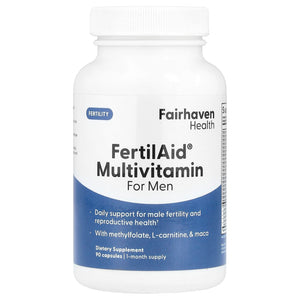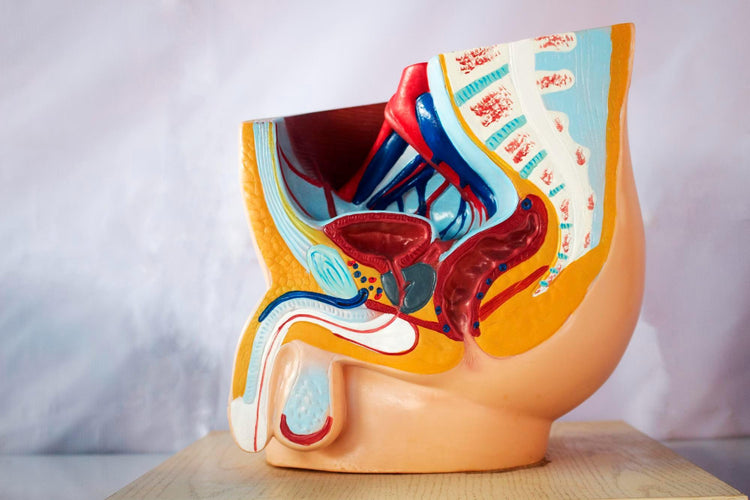
 Instagram
Instagram
Rash on Penis: Possible Causes
.png?v=1664463326987)

Related products
What’s covered?

If your penis has a painful rash, it is important to learn what might be causing it because it may be a sign of something serious like penile cancer or a sexually transmitted infection. Regardless of the circumstances, you should consult with a doctor for a diagnosis. Speak to your doctor about your concerns so they can understand if it is due to a penis irritation. The following article describes the reasons for the rashes and spots on the penis, both infectious and non-infectious.
Penile Cancer
Penile cancer is less commonly reported than lesions to the penis. Penile cancer is diagnosed in about 22,000 individuals annually. The early stage is termed penile carcinoma in situ. The lesion is often red with velvetiness. Most penile cancer is a squamous cell carcinoma.14. The tumour grows gradually. These usually show scaly patches in the gum and skin. Verrucous carcinomas are less common forms of squamous cell carcinomas. It also grows slowly and can be seen as big warts. Penile melanomas have a higher risk of infection. Developments occur quickly. Lesions are purplish browns and blacks.
Infectious Causes
An infected condition means a condition that could easily be transmitted to someone. Infection on the penistrum is generally transmitted by sex. Some patients suffer serious health problems because bacterial growth leads to a urinary tract infection.
Sexually transmitted infections
Molluscum Contagiosum
Molluscum contagiosum can become an infectious disease in the body. It's possible to show in any part of your body, including your penis' sensitive skin. It can easily pass through sexual contact or another kind of contact with the skin. Transmission is sometimes possible when sharing towels, clothes, gym mats and other household items. People who lack a healthy immune system are particularly vulnerable to infections like HIV. Molluscum contagiosum is a complex, dome-shaped bump with a ridge at a point. It usually has fleshy colours. The genital and inner legs have their appearance, but also the face, thorax, armpit and abdominal areas. It is typically painless when bumping.
Primary Syphilis
STI - Syphilis, a disease which affects the nervous system. It is a condition caused by syphilis if the skin is exposed during a sexual relationship. This sore is usually a circular lesion that does not cause pain. It can often be ulcerated, meaning the surface tissues disappear. You may find this pain in the pinning. Unseen skin irritations can occur in the rectum, chin, mouth or throat. It's one of the first signs or symptoms of syphilis. If left untreated, it may develop into a severe secondary and tertiary syphilis disease. It could be months or a year. Doctors can detect syphilis via blood tests.
Human papillomavirus (HPV)
Vaccines against human malaria and HIV can be fatal. The wart can also occur in genital areas. HPV can be spread through vaginal sex and oral sex and is transmitted via a skin-to-skin relationship, such as mutual masturbation. Usually, the HPV infection does not resolve itself. A small percentage of those who have warts have developed cancer. Certain types of HPV can lead to cancer. You may use topical remedies to eliminate warts slowly. In addition, the physician may cut the wart off or burn it down.
You may experience redness, itching or burning in your genital area or a red rash on the head of the penis.
For example, yeast infections are common in women who wear tight-fitting clothing. Urinary tract infections and sexually transmitted infections are also possible causes of genital itching. Genital psoriasis can cause redness on the skin of the penis, as can fungal infections. Genital herpes and yeast infections may also be possible causes of genital itchiness. Genital itching may be a symptom of an STD or another infection. See your doctor if you experience genital itching, as it can signify an STD or other health problem.
In addition to these possibilities, it's essential to consider whether you've recently had sex with someone with a sexually transmitted infection (STI). It is because many STIs can cause symptoms similar to those listed above. The most common STIs that may cause genital itching are chlamydia, gonorrhoea and genital herpes. Yeast infections can also be a cause of genital itchiness. It is important to note that genital itching can also be caused by non-sexually transmitted infections, such as scabies and mites. These infections may be transmitted through skin-to-skin contact or bedding or clothing.
If you think that one of these issues might be causing your symptoms of a fungal infection that irritate genital skin, seek treatment from your doctor or dermatologist as soon as possible. If a sexually transmitted infection (STI) is the cause of your skin irritation, it's essential to seek treatment and be treated as soon as possible. Although you can sometimes manage genital psoriasis with treatments from your doctor or dermatologist, it can also cause long-term skin damage if left untreated.
Genital psoriasis
Genital psoriasis, on the other hand, is an autoimmune condition resulting in red patches in males and can irritate genital skin leading to urinary tract infections in women. A low-dose antifungal cream is often the first prescribe medication by doctors to relieve irritation.
Although there are cases where an allergic reaction took place along the way, you should still seek treatment. This is true, especially if you start noticing a red rash on your penis skin or penis shaft, particularly an intense itching in the women's genital area, such as yeast infection.
Poor hygiene before sexual intercourse may also lead to certain sexually transmitted infections because of skin-to-skin contact.
Final words
Penis irritation is a common condition that affects males. It can be caused by many factors, including poor hygiene, yeast infection, or skin conditions.
Penis irritation is characterized by an intense burning sensation, itching and pain on the glans of the penis. Most cases of penis irritation are not severe, but it's important to seek professional medical advice from a health professional to determine the exact cause of penis irritation. Your healthcare provider may prescribe an antifungal cream or over-the-counter oral medications as itch or pain relievers. Laser therapy can be helpful in some instances, such as spots.
If you want to order a sexual health test, order one of our private at-home testing kits today, learn more here. Or to order specific treatment, follow these links to our treatment and testing pages: Chlamydia, gonorrhoea and Genital herpes
To learn more about men's health issues, read through our Men's Health Hub page here.















 Rated Excellent by 26,523+ Reviews
Rated Excellent by 26,523+ Reviews